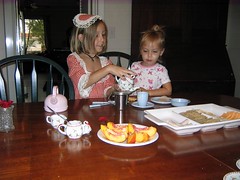Listen to the sounds going on around you. What do you hear? The air conditioner or heater kicking on? The dog slurping water? The drone of the refrigerator behind the TV laugh track?
Stay quiet for a few minutes and really listen. Then write the sounds as you hear them, attempting to match them as you write.


















